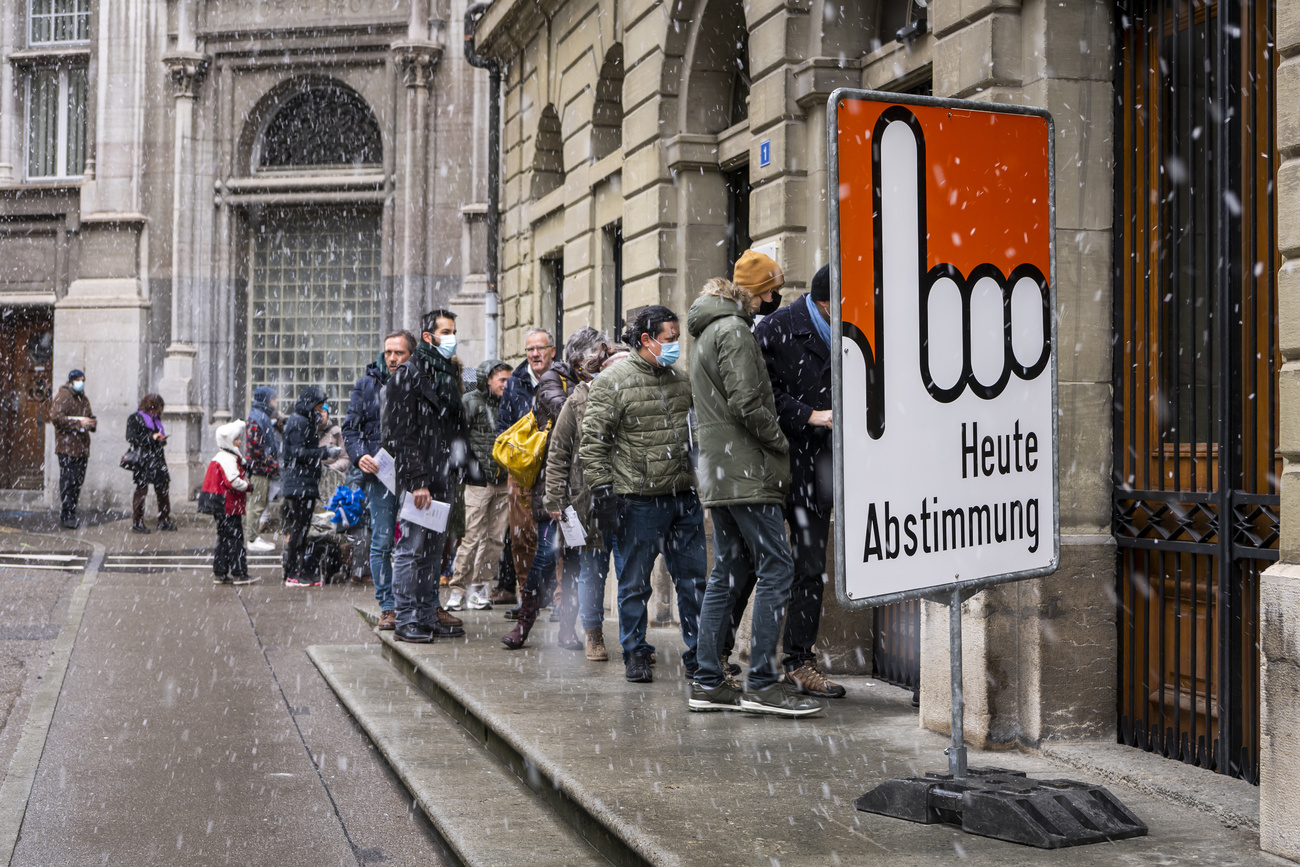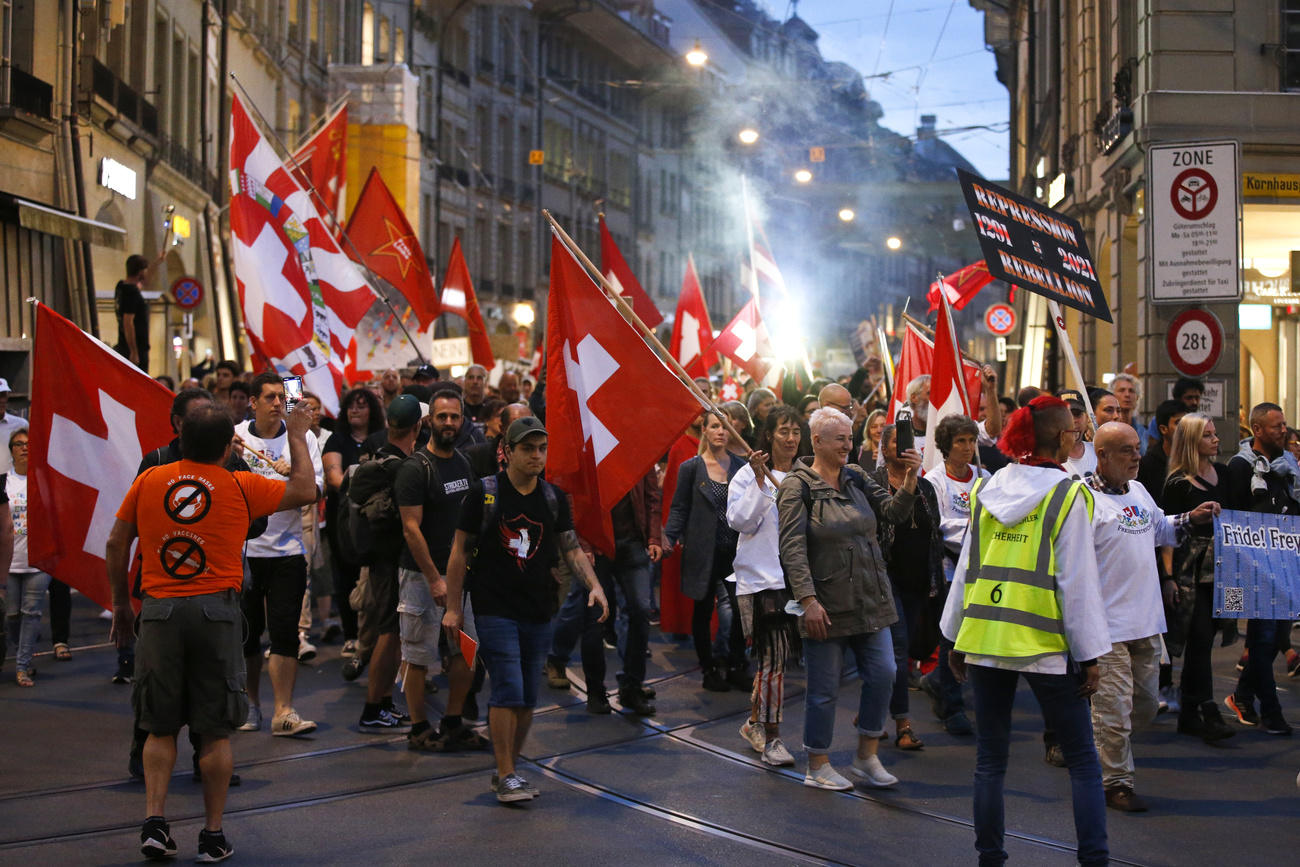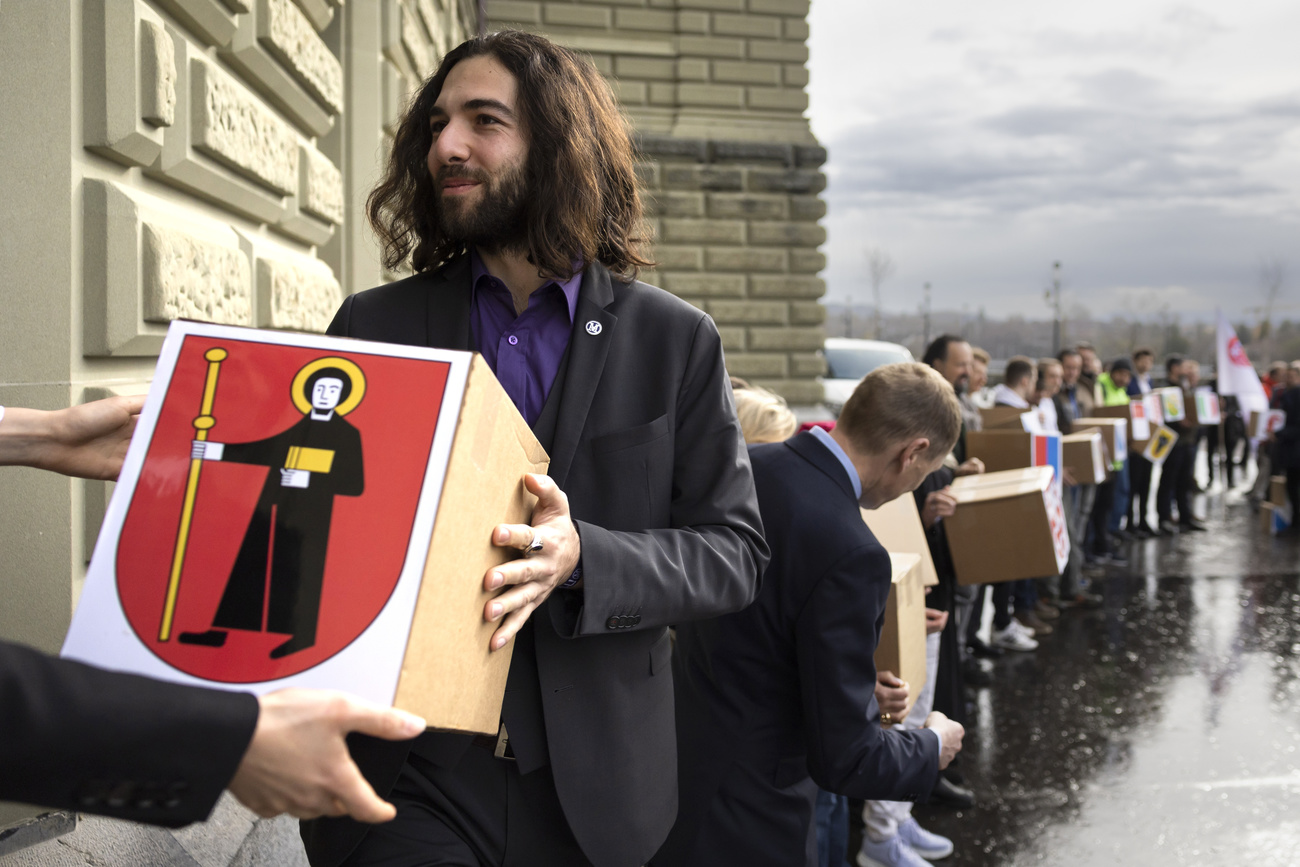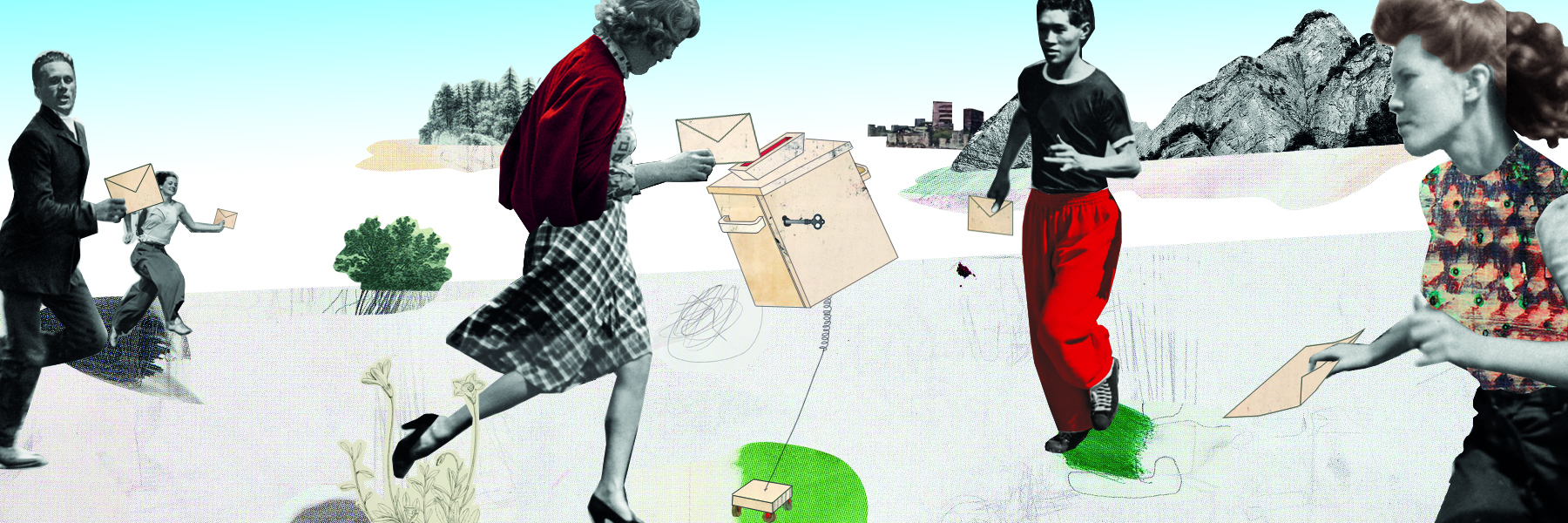Why the Swiss have voted three times on the Covid-19 law

Switzerland is the only country in the world to have held not one but three referendums on legislation to tackle the Covid-19 pandemic. All three times the result was a “yes” vote. Why have Covid-19 measures been so contentious – and what is the value of multiple referendums for society?
The correct and proportionate measures to counter a pandemic have been the subject of heated debate in many countries.
In the United States, for example, the then-president Donald Trump regularly spread misinformation about the virus. In the Swiss debate, Sweden became a model for those who wanted as few health-protection rules as possible.
At the same time, Switzerland’s Covid-19 policy stood out in one respect. Apart from Liechtenstein, which has just under 40,000 inhabitants, Switzerland was the only country in which citizens could vote on the legal basis for pandemic measures – albeit after the fact.

Giada Gianola is a political scientist at Année Politique Suisse, a research institute that publishes a yearly look at political events in Switzerland. Gianola thinks that, “from the point of view of democratic theory”, it is good that citizens in Switzerland had the opportunity to vote on the Covid law.
The optional referendum is a constitutional right in Switzerland. When 50,000 signatures from eligible individuals are collected against a law, a referendum is held. Since the Covid-19 law has been amended several times, it means a referendum could be held each time the law was amended.
What would have happened if the Covid-19 law had been rejected?
But Gianola also recognises a strong argument against referendums on pandemic policy.
“The pandemic was a global phenomenon that required several very complex measures similar to those in other countries,” she says. “If these measures had been rejected by voters, it would have made the work of the [government] and parliament very difficult”
The first referendum took place in June 2021. At the time the vaccination rate in Switzerland was barely one-third of the population. Yet 60.2% voted in favour of the Covid-19 law.

More
June 18 votes: results from across Switzerland
Even when concerns about the pandemic slowly started to recede, the law remained high on the political agenda. This is because it regulated concrete restriction measures, such as contact tracing and vaccination or immunity certificates, as well as support measures for sports clubs and cultural institutions. However, these social measures expired in 2022 and were not extended and were therefore not part of the third vote.
Other instruments of pandemic control, such as the compulsory use of masks, are regulated by the Epidemics Act, which was adopted by Swiss citizens in 2013.
Heated debates prior to second vote
In the lead-up to the second referendum in November 2021, discussions became particularly divisive. The debate was dominated by conspiracy theories. At demonstrations, there were attacks by opponents of the Covid-19 measures against members of the media. In addition, police interventions against opponents of pandemic restrictions were perceived by many as being disproportionate.

Political scientist Claude Longchamp saw the second referendum campaign as one of the toughest in recent memory. Nevertheless, once again, a majority (62%) voted in favour of the law.
At the time, the Covid law was the dominant issue on the ballot, and the turnout was the fourth-highest in Swiss history, at 65.7%.
So why did the Swiss vote again?
Prior to the third referendum in June 2023, the engagement of opponents of the Covid law was limited. A ‘yes’ vote was almost guaranteed. Some called the third vote “plain coercion”, as by then no pandemic measures remained in place.
If a dangerous new Covid variant were to emerge, the authorities would have to react quickly. For this reason, the Swiss parliament decided at the end of 2022 to extend some aspects of the law, including the Covid-19 certificate, from the end of 2022 to summer 2024. It is because of this six-month extension that the opponents were able to initiate a new referendum. They collected 60,000 signatures – 10,000 more than necessary to force a vote.

More
Why people in Switzerland trust the state
Three referendums on the same issue are a rarity, even for the country that holds the most number of votes worldwide.
“These are certainly exceptions, but the phenomenon of multiple votes on the same issue has not been as rare as one might think in recent decades,” says Gianola. One example is the introduction of a national health insurance scheme, which was rejected four times by voters in 1994, 2003, 2007 and 2014.
More
Referendum as a form of participation
“The Covid-19 Act was amended several times to keep it up to date with the respective challenges caused by Covid-19,” says Gianola. “Various committees disagreed with this law and successfully gathered support to force a referendum.” The ‘yes’ votes in each case “strengthened the legitimacy of the decisions”, she adds. “This is in line with Swiss direct-democracy procedures.”.
In the last two years, the mood has relaxed somewhat, but the social rifts over pandemic restrictions have not completely disappeared.
“In 2020 and 2021, the mood was very heated,” says Gianola. She attributes this to the fact that the Covid-19 law had “immediate consequences” for every individual. Going to the restaurant, for example, was for a time only possible with a certificate.
These conflicts also relate to trust in authorities. “A study conducted in Switzerland in 2021 showed that fear of Covid-19 leads to an increase in trust in government, while anger leads to a decrease in political trust,” Gianola explains.
But in the Swiss political system, there are ways in which those who disagree with political decisions can act and vent their anger. “People who have lower political confidence because of the Covid-19 measures have maybe participated differently in democracy,” says Gianola.
This participation can take various forms, such as demonstrations, collecting signatures or supporting the call for a referendum against the Covid-19 law. In this way, they have continued to participate. “They are not excluded from democracy, but they use other forms of political participation to express their displeasure,” says Gianola.
From this perspective, a third vote on the Covid-19 certificate has added social value: the possibility of a referendum offers the dissatisfied an institutional framework by which to bring their displeasure with the system forward for political debate, and thus gives them an outlet.
Edited von Marc Leutenegger.
Translated from German by Sue Brönnimann/amva

In compliance with the JTI standards
More: SWI swissinfo.ch certified by the Journalism Trust Initiative











You can find an overview of ongoing debates with our journalists here . Please join us!
If you want to start a conversation about a topic raised in this article or want to report factual errors, email us at english@swissinfo.ch.